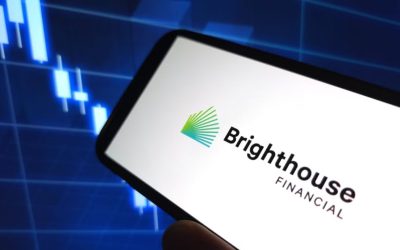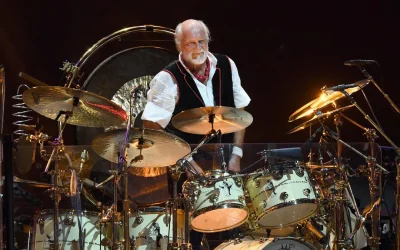Globally, 552 private equity funds reached their final close in the first half of the year, 31% fewer than in the same period last year.
Private equity firms are finding it harder to close new funds in the time of social distancing and Zoom meetings.
The number of new private equity funds to reach final closes fell sharply in the first half of the year, with the decline accelerating after the coronavirus pandemic caused states to impose mass lockdowns late in the first quarter. Globally, 552 private equity funds reached their final close in the first half of the year, 31% fewer than in the same period last year, according to data provider Preqin.
At the same time, the total amount of money raised for private equity deals showed a smaller decline, reflecting a trend — which began long before the coronavirus — of investors concentrating more of their dollars with fewer managers. Firms closed funds totaling $259bn in the first half, 4% less than in the same period of 2019, according to Preqin.
This split — with fewer funds reaching their closes, but those that close gathering more capital — reflects a two-tiered fundraising environment, which the coronavirus crisis has only amplified.
“The groups that were highly sought after before Covid continue to be highly sought after,” said Todd Silverman, principal and head of private equity research for consulting firm Meketa Investment Group. The pandemic has, however, exacerbated the fundraising difficulties of less experienced managers without long-established relationships with institutional investors, he added.
Among the US firms that announced significant fund closings in the first half were Platinum Equity, which amassed $10bn for its fifth buyout fund; Clearlake Capital Group, which raised more than $7bn for its sixth flagship fund; Francisco Partners, which raked in $10bn across three funds including $7.45bn for its latest flagship vehicle; Aquiline Capital Partners, which closed its fourth fund at $2bn; and Summit Partners, which closed on $2.2bn for a pair of new funds.
Among European firms, CVC Capital Partners has been the leader so far in 2020. It reportedly wrapped up its eighth flagship fund with €21.25bn and announced the closing of its $4.5bn Asia Pacific fund, though the flagship fund isn’t included in Preqin’s data and wasn’t reported as closed until July.
The coronavirus outbreak began to upend private equity fundraising around early March. Firms started to cancel roadshows and in-person due diligence meetings over fears of infection and travel restrictions, while many investors started to pull back on new commitments in anticipation that their liquidity would be constrained.
However, given that fundraising processes generally take up to a year to complete, firms were able to finish off funds that had begun earlier and were already in process when the disease struck. Since fundraises typically take about nine to 12 months, most of the funds closed in the first half were in this category, Silverman said. But over the next quarter, the pipeline of funds begun before the pandemic may start to thin, he said.
Pandemic lockdowns tended to weigh more heavily on newer, less-established firms, and those just beginning a fundraising process, according to consultants and placement agents. This is because investors need to do more intensive due diligence on firms they haven’t backed in the past — some of which must be done in person—to get comfortable with a commitment.
Brenda Rainey, senior director of consulting firm Bain & Co.’s private equity practice, said about half the limited partners her firm spoke with are uncomfortable making a new investment without a physical meeting
“Private equity operates around handshakes and in-person meetings,” she said. However, both sponsors and LPs are rapidly adjusting to the new realities of the pandemic, and “we feel that committing virtually is going to be inevitable” as the pandemic continues.
Still, apart from new firms trying to forge relationships with investors, the logistics of fundraising during pandemic lockdowns didn’t prove impossible. Rather, the economic shocks as the virus spread in late March caused investors to hit pause on new commitments and sponsors to delay launching new processes, said Rainey.
Fundraising resumed in April and May as investors realised that liquidity and the denominator effect were unlikely to curtail new commitments, due to the quick snapback in public markets. In March, half of the limited partners Bain spoke with said they were concerned about liquidity, but only 10% said so in May, said Rainey.
Data from the second quarter show the fundraising slump caused by this moment of panic. The $115.7bn in aggregate capital raised was the lowest second-quarter sum since 2015, while the 225 funds to reach their final close was the lowest number in any quarter stretching back at least to the beginning of 2015, Preqin said.
There were winners and losers in how LP demand has changed under the pandemic. It caused a shift in interest away from high-growth strategies and toward secondary and distressed strategies, said Rainey. The logic is that a recession will make debt-constrained companies available for cheap, and more private equity firms will need to use secondary transactions to get liquidity to older investments.
According to Preqin’s survey of limited partners, the percentage of investors targeting buyout, venture and growth funds in the first half of 2020 declined from the same period in 2019, while the percentages targeting secondary and turnaround funds rose.
The two largest funds to close in the first half of the year were both secondary funds: Ardian’s $19bn ASF VIII and Lexington Partners’ $14bn ninth flagship fund, according to Preqin.
Meanwhile, among strategies targeting specific sectors, interest in technology and health care has increased, due in part to expectations that the pandemic will cause long-term remote work and increased health spending, said Alicia Cooney, partner and co-founder of consulting firm Monument Group.
Two of the five largest funds closed in the first half were tech-focused vehicles: Insight Partners’ $9.5bn 11th fund and the $7.45bn Francisco Partners fund, according to Preqin.
The pandemic also appeared to somewhat shift the geographies fund investors targeted, as the countries in Asia where the virus first took hold began to return to normalcy even as the disease continued to spread rapidly in the US and elsewhere. Preqin says that compared with the first half of 2019, slightly fewer investors are targeting funds that focus on North America, while more are interested in funds targeting the Asia-Pacific region.
In the second quarter, however, funds targeting North America and Europe continued to account for the lion’s share of money raised. North American-focused funds gathered $60.6bn, Europe-focused funds $36.5bn and Asia-focused funds $16.5bn, according to Preqin.
The second quarter also saw a reversal of the trend toward faster fund closings. For years, private equity firms have been ramping up the speed with which they close funds, rankling some limited partners that feel pressured to make a quick decision or risk missing an opportunity to invest.
That trend appeared to ease under the pandemic, with 23% of the funds that closed doing so in six months or less, the lowest percentage for any second quarter since at least 2015, according to Preqin. The percentage that took 19 to 30 months to reach a final close increased.
Source: Wall Street Journal
Can’t stop reading? Read more
Aquarian Capital to take Brighthouse private in $4.1bn deal backed by Mubadala and RedBird
Aquarian Capital to take Brighthouse private in $4.1bn deal backed by Mubadala and RedBird...
Blackstone and Permira draw early interest from Prosus, EQT and others for €10bn Mobile.de stake
Blackstone and Permira draw early interest from Prosus, EQT and others for €10bn Mobile.de stake...
KKR reunites with BMG to expand investments in high-value music catalogues
Bain Capital prepares Eleda IPO in Stockholm amid strong Nordic infrastructure demand Bain Capital...




